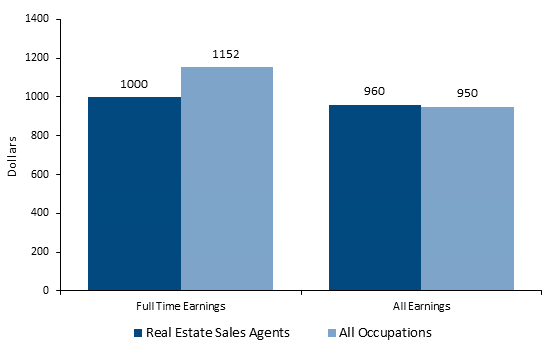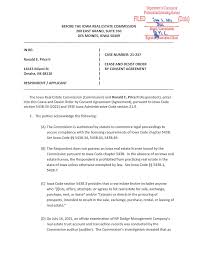
Whether you're an investor who wants to start making passive income through real estate or a seasoned pro, knowing how to calculate roi on rental property is crucial. This can help you decide if a particular property fits your financial and investment plans.
Calculate ROI on Real Estate
To calculate a property's roi, investors need to know the details of the property and what they expect it to produce. This information includes the property's price, its closing costs, any required repairs and remodeling. Investors also need to know the rent generated by the property and how many tenants will be living there.
The purchase price is one of the most important factors in calculating ROI on a rental property. The purchase price of the property, as well as any associated costs such a title insurance or inspections are included.
Mortgage expenses are also important to consider when determining ROI on a property. These expenses could include monthly payments, rates of interest and any other fees that are associated with a loan.

Another popular method to estimate the return on a real estate investment is Net Operating Income. This includes cash flow from a property that is produced after operating costs, but before the mortgage payment.
Another factor to take into consideration when estimating an investment's return is the Cap Rate. This is the percentage that a property should be worth based on market conditions. This calculation can be a little more complicated, but it's still very useful.
Appreciation can be a good way to earn additional profit and increase the value of a property over time. In general, a home's value increases by 3.5% to 3.8 percent per year.
Other sources of income such as utility bills and rental income can also impact a property's return on investment. They are often forgotten when estimating the ROI of a property, but can play a significant role in building a profitable real-estate portfolio.
The 2% Rule in Real Estate is a simple method for calculating a property’s ROI. According to the 2% rule, a real estate property should be capable of generating at least 2% in monthly cashflow.

By using this formula, it is possible to see that an investment property that sold for $200,000 would produce $10,500 of annual returns. This can be multiplied by $1,500 for closing costs, and $10,000 for remodeling, to calculate the ROI.
The percentage of a good return on investment varies from investor to investor. However, most investors aim for at least 10%. Investors can choose their own metric to determine a good return rate, but it is helpful to understand the different ways to calculate an ROI.
Smart investors will run multiple calculations in order to determine the ROI of a particular property and then compare that number to their projected income. It is very helpful to determine if an investment will be a good fit for their individual financial goals.
FAQ
What should I look out for in a mortgage broker
People who aren't eligible for traditional mortgages can be helped by a mortgage broker. They look through different lenders to find the best deal. This service may be charged by some brokers. Others offer free services.
How do I calculate my interest rates?
Market conditions can affect how interest rates change each day. The average interest rates for the last week were 4.39%. Multiply the length of the loan by the interest rate to calculate the interest rate. For example, if you finance $200,000 over 20 years at 5% per year, your interest rate is 0.05 x 20 1%, which equals ten basis points.
How much money do I need to save before buying a home?
It all depends on how long your plan to stay there. Save now if the goal is to stay for at most five years. But if you are planning to move after just two years, then you don't have to worry too much about it.
Is it better to buy or rent?
Renting is usually cheaper than buying a house. But, it's important to understand that you'll have to pay for additional expenses like utilities, repairs, and maintenance. You also have the advantage of owning a home. You'll have greater control over your living environment.
Statistics
- This means that all of your housing-related expenses each month do not exceed 43% of your monthly income. (fortunebuilders.com)
- Some experts hypothesize that rates will hit five percent by the second half of 2018, but there has been no official confirmation one way or the other. (fortunebuilders.com)
- Over the past year, mortgage rates have hovered between 3.9 and 4.5 percent—a less significant increase. (fortunebuilders.com)
- It's possible to get approved for an FHA loan with a credit score as low as 580 and a down payment of 3.5% or a credit score as low as 500 and a 10% down payment.5 Specialty mortgage loans are loans that don't fit into the conventional or FHA loan categories. (investopedia.com)
- When it came to buying a home in 2015, experts predicted that mortgage rates would surpass five percent, yet interest rates remained below four percent. (fortunebuilders.com)
External Links
How To
How to Find an Apartment
The first step in moving to a new location is to find an apartment. This process requires research and planning. This involves researching neighborhoods, looking at reviews and calling people. This can be done in many ways, but some are more straightforward than others. These are the steps to follow before you rent an apartment.
-
Online and offline data are both required for researching neighborhoods. Online resources include Yelp. Zillow. Trulia. Realtor.com. Other sources of information include local newspapers, landlords, agents in real estate, friends, neighbors and social media.
-
Read reviews of the area you want to live in. Yelp, TripAdvisor and Amazon provide detailed reviews of houses and apartments. You can also check out the local library and read articles in local newspapers.
-
To get more information on the area, call people who have lived in it. Ask them what they liked and didn't like about the place. Also, ask if anyone has any recommendations for good places to live.
-
Be aware of the rent rates in the areas where you are most interested. If you are concerned about how much you will spend on food, you might want to rent somewhere cheaper. However, if you intend to spend a lot of money on entertainment then it might be worth considering living in a more costly location.
-
Find out all you need to know about the apartment complex where you want to live. It's size, for example. What is the cost of it? Is it pet friendly? What amenities is it equipped with? Are there parking restrictions? Are there any rules for tenants?